- Home
- Alison Weir
The Marriage Game: A Novel of Queen Elizabeth I
The Marriage Game: A Novel of Queen Elizabeth I Read online
The Marriage Game is a work of historical fiction. Apart from the well-known actual people, events, and locales that figure in the narrative, all names, characters, places, and incidents are the products of the author’s imagination or are used fictitiously. Any resemblance to current events or locales, or to living persons, is entirely coincidental.
Copyright © 2014 by Alison Weir
All rights reserved.
Published in the United States by Ballantine Books, an imprint of Random House, a division of Random House LLC, a Penguin Random House Company, New York.
Originally published by Hutchinson, a member of The Random House Group Limited, London, in 2014.
BALLANTINE and the HOUSE colophon are registered trademarks of Random House LLC.
LIBRARY OF CONGRESS CATALOGING-IN-PUBLICATION DATA
Weir, Alison.
The marriage game : a novel of Queen Elizabeth I / Alison Weir.
pages; cm
ISBN 978-0-345-51191-1 (hardcover : acid-free paper)—
ISBN 978-0-8041-7730-6 (eBook)
1. Elizabeth I, Queen of England, 1533-1603—Fiction. 2. Leicester,
Robert Dudley, Earl of, 1532?-1588—Fiction. 3. Queens—Great Britain—Fiction.
4. Great Britain—History—Tudors, 1485-1603—Fiction.
I. Title.
PR6123.E36M37 2014
823′.92—dc23 2014031538
www.ballantinebooks.com
Title-page image: © iStockphoto.com
Jacket design: Natascha Nel
Jacket art: lady’s jacket, linen embroidered with silk, seventeenth century (detail) (© Victoria and Albert Museum)
v3.1
Contents
Cover
Title Page
Copyright
Epigraph
1558
1559
1560
1561
1562
1563
1564
1565
1566
1567
1570
1571
1572
1573
1574
1575
1576–77
1578
1579
1580
1581
1582
1583
1585
1586
1587
1588
Epilogue: 1603
Author’s Note
Dedication
Other Books by This Author
About the Author
When I was fair and young, and favor graced me,
Of many was I sought, their mistress for to be;
But I did scorn them all, and answered them therefore,
“Go, go, go seek some otherwhere!
Importune me no more!”
—POEM BY ELIZABETH I
1558
She had put on the black mourning gown. Even though her heart was singing for joy, she knew she must appear decently to mourn the sister she had feared and come to hate. She was thus attired with jet glistening on her tight black bodice, on her long train, and at her ears, her red hair coiled up under a peaked cap. On that crisp November afternoon of her accession day, she made her stately, smiling way through the ranks of eager courtiers who thronged the palace of Hatfield to the soaring great hall. Hastily hung with damask, it was to serve as her council chamber, and upon the dais there was set a rich chair beneath a canopy of estate of cloth of gold, emblazoned with the royal arms of England. The lords assembled along the polished oak board bowed low as she strode in briskly and took her place—her rightful place, she told herself—on her throne. The seat of government, she reflected, smiling at the expectant men, and now I know what it is to be charged with the sacred care of my people.
Immediately after they had come upon her in the park with the momentous news that she was now, by the grace of God, Queen of England, Elizabeth had hastened back through the patchy November mist to the palace of Hatfield to give thanks to God for this, the most manifold of His blessings. He should not have cause to regret it, she vowed. She would do her duty and more. She would put an end to the strife and bloodshed over religion and the succession. She would be a mother to all her subjects, loving and cherishing them as if they were truly her children, and guiding them in the way they ought to go. She would win and keep their love and their respect, and they would be her shield against the enemies who would surely beset her.
She surveyed the men who would serve her, a mere woman, her eyes bright and dancing, her narrow pointed face alive with triumph. She had accomplished it! She had survived! And now she would rule. Briefly, she wished her father, great Harry the Eighth, could have lived to see this day. All her life she had craved his approval, and yet it had never occurred to him that his daughters might be capable of ruling England. All he had wanted, for most of his long reign, was a son to succeed him. For that he had married six times. Would he be proud to see her now, seated in this chair of estate he had once occupied? She hoped so.
She thought too of her mother. That the disgraced Anne Boleyn’s bastardized infant should have come through so many perils and inherited the throne was surely a sign of God’s approval. Anne had been vindicated at last. If there was exultation in Heaven, this was surely the occasion for it. Maybe Anne knew now that her blood, cruelly shed by an executioner’s sword, had not been spilled in vain.
Elizabeth shivered, and not just because the lofty hall was chilly. She felt quite overcome with gratitude to God, who had brought her safely to this place. She was twenty-five, and all but two of her years in this world had been testing. But she had been honed from fine steel. She had survived bastardy, scandal, controversy, and accusations of treason and heresy. Converted to the true, Protestant faith in childhood, she had steered herself steadily through the stormy waters stirred up by her Catholic sister, the late queen, and come at last to a safe harbor. Who would have thought that she, the least of King Henry’s children, would one day wear a crown?
Sir William Cecil, faithful, clever friend throughout the years of trial and testing, took his place at Elizabeth’s right hand, laying before her the accession proclamation for approval. It would be cried in every town and city in the land, and sent to royal and princely courts throughout Christendom.
“Thank you, William,” she said, twinkling at him. An unwonted smile creased his long, serious face, and he bowed his head, stroking his beard. A stout Protestant of thirty-eight, and a clever lawyer, he had effortlessly slipped into place as her chief adviser; she knew she could trust his wisdom, his ability, and his fidelity. He was a man who liked simple pleasures, hardworking and discreet, and above all trustworthy. He had proved himself in the dark days of her sister’s reign by his quiet but constant support.
“Madam, there is the matter of public mourning for the late queen.”
“Three days should suffice,” she told him. She doubted that many would mourn Mary for long, not after her savage persecution of heresy. Mary had sent three hundred Protestant souls to the stake. That must now stop. Elizabeth had already given the order sparing all the poor wretches who yet remained in prison awaiting a dreadful death. She would never have her subjects, even Catholics, burned for their beliefs. She would not make windows into men’s souls, so long as they showed themselves faithful and obedient.
“Next.”
“Your Majesty, we must remove to London as soon as possible. So many have come here that there are no lodgings to be found for them.” They had been arriving for days, a steady stream of courtiers who had abandoned the dying Mary to seek favor with her successor. Elizabeth shuddered. Heaven forbid t
hat should one day happen to her, when she saw death approaching.
Cecil was going through his agenda. “There is Your Majesty’s coronation to be planned, but we can discuss that anon. As for shifting the court, and all your Majesty’s household and stuff, I would advise the urgent appointment of a Master of Horse.”
Elizabeth’s eyes scanned the expectant men seated around the table. Somberly but richly clad like herself, they were all substantial persons of rank and breeding, hardheaded and ambitious. She realized that, as a woman, it would take all her skill to manipulate them to her will; but there were ways of handling that. She smiled to herself. She would ration her favors so they would be all the more prized, make her servants work hard for their rewards, and lead them on to live in hope. Her mother had done it, even with her awe-inspiring father, and so therefore would she. Some of these lords had served Queen Mary, reluctantly at times, she knew. There sat the earls of Winchester and Sussex, who had escorted Elizabeth to the Tower in the dark days of 1554, clearly contrary to their will and better instincts. She did not hold it against them, for they had shown her all the kindness they dared. There too were Throckmorton and Knollys, staunch Protestants both, now able to profess their faith without fear; and Shrewsbury, Arundel, Pembroke, and Derby, shrewd men of experience who had turned their coats to the wind more than once; the clever lawyer Nicholas Bacon; William Parr, brother to the late Queen Katherine, whom Elizabeth had loved but wronged, she remembered painfully; and Lord Robert Dudley.
Robert, magnificently dressed and making his usual extravagant impression, had been seated astride his white charger, waiting to greet Elizabeth as she strode into the courtyard at Hatfield, exultation in her heart. She would forever associate him with that glorious moment. They had known each other since childhood, been prisoners in the Tower at the same time, for Robert—the son and grandson of traitors—had himself come under suspicion. His father, the Duke of Northumberland, had been beheaded by Queen Mary for setting up the usurper, Jane Gray, in her place, and the Dudley family had duly fallen. After his release, Robert clawed his way back into favor, proving his loyalty and his prowess on the battlefield.
He was opinionated and a braggart, and some found him insufferable, but Elizabeth had always been fond of him, for she knew there was kindness, loyalty, and a serious mind beneath the bravado. There was an inner man whom few knew, who had robustly espoused the Protestant cause, was fascinated by science, geometry, mathematics, astronomy, maps, and navigation, had read the classics and could speak fluent French and Italian. Robert had also distinguished himself gallantly in the tiltyard and in war, yet what most people saw was a showily dressed young man who rode a horse as magnificently as he jousted, who danced and sang divinely and was expert at tennis and archery. But what counted most to Elizabeth was that he had been a good friend to her throughout the dark days of Mary’s reign, even to the extent of impoverishing himself for her sake. It was for that kindness that she was now about to reward him.
She might have allowed herself to like him better were he not married. It had been a carnal marriage, Cecil had told her, a touch disapprovingly, and founded more on lust than good sense, but she doubted the lust had lasted. Amy Robsart was pretty and graceful, but Elizabeth had reason to believe that she lacked the skills to keep a man captivated.
She thought back to that forbidden moment in the Tower when, briefly, she had snatched some conversation with Robert and known instinctively that he wanted her. They had not been supposed to meet, but she had been permitted to walk in the fresh air, and there he had been, looking down on the garden from his vantage point on the wall walk. They had called softly to each other, their shared predicament lending the moment a kind of intimacy. After two or three contrived encounters, Elizabeth had little doubt that Robert had a fancy for her, and knew that she was powerfully attracted to him. Then their jailers realized what was going on, and the meetings ceased. Later on, after both Elizabeth and Robert had been released, he from the Tower, she from months of house arrest at Woodstock, they had rarely seen each other, for he was away soldiering, and she was away from court as often as possible, avoiding the enmity of her sister, Queen Mary. It was as well, in the circumstances, she had thought …
Now her eyes came to rest on Robert’s dark, saturnine features, which had earned him his nickname, the Gypsy, although it was never used to his face. Despite her misgivings, she found herself wanting to feast her eyes on him. His tall, muscular stature, lean visage, red-brown hair and neat beard were of a type that vastly appealed to her. They reminded her of—No, she must not think of him, today of all days. That way lay horror and fear.
“Lord Robert shall be my Master of Horse,” she announced, keeping command of herself. “There is none more skilled with horses than he, and I have no doubt that he will also excel at organizing my coronation procession and entertainments for my court.” There was a murmur of discontent. By virtue of his duties, the Master of Horse would often be in company with the Queen, and therefore in an enormously influential position. Robert was grinning broadly, not heeding the discomfiture and unconcealed jealousy surrounding him. Elizabeth ignored it too. She was the Queen, and she would have about her a man who was congenial to her.
Later, when they had all dispersed and she was in her privy chamber, impatiently signing her way through a mountain of state papers, Cecil came to her.
“Your Majesty, forgive me, but was that wise? There are many more worthy. People have not forgotten the ambition of the Dudleys, or where it led. Think of that harvest of heads that followed Northumberland’s fall.”
“Robert is loyal and he has the requisite qualifications for the post,” Elizabeth insisted. “Those who criticize him are merely envious.”
“Madam, I pray you, be governed by me, or some other wise person. With respect, you are a woman and in need of masculine guidance.”
Elizabeth suppressed a smile. She was well aware of Cecil’s views on the frailty of women. “Why should that be so, William?” she asked sweetly.
Cecil’s thin face flushed. “God gave men the power and wisdom to wield dominion over mankind. Your Majesty has most rightfully succeeded to the throne of your forefathers, and yet—forgive me if I speak plainly—the weakness of your sex makes it incumbent upon you to accept advice and guidance from your humble servants, who are able to give it on account of their experience and their—ah—superior intellect. Book learning, in which Your Majesty is notably well versed, is not enough. This is a turbulent and dangerous world we live in.”
Elizabeth frowned, but she acknowledged the truth of Cecil’s last words. The old order was dying; Christendom was divided, with the might of Catholic Europe set against Protestant states that had dared to break away from Rome. England, now that she ruled, was about to become one of them; already she had many enemies, some of whom might be showing a friendly countenance for their own ends. She was aware that most of Christendom regarded her as the bastard of a public strumpet, a heretic who had no right to the throne she occupied. And soon, when her new Anglican Church was established—as she was determined it would be—she and her island kingdom would stand in ever greater peril.
“Despite my womanly weaknesses, and my ‘inferior intellect,’ my sex cannot diminish my prestige,” Elizabeth reproved him, then quickly relented. “You mean well, old friend. I am well aware of the perils that will beset my path, but I mean to govern myself—with the benefit of your wisdom, of course. Talking of fathers,” and she turned around to look at the portrait of Henry VIII in all his fearsome glory behind her, “would you have spoken thus to mine?”
“Er, no, madam.” Cecil had to smile, knowing she had bested him. “But his late Majesty was not a woman!” Elizabeth threw back her head and laughed, but she resolved to make it plain to everyone that she was made of no ordinary female clay.
Three days later, she sat enthroned in the great hall at Hatfield beneath a royal canopy of estate brought by the deserting rats from St. James’s Palace in L
ondon. The lords had formally made obeisance to her as Queen, and now she was to announce the names of those who would serve as her councillors and chief advisers. She had prepared a speech. She knew herself to have an eloquent style and some talent with her pen, and she had worked hard on this, her first oration as Queen. Reading it over, she was proud of this particular result of her efforts.
Smiling, she summoned Cecil to step forward.
“William, my good servant, I appoint you my Secretary of State, the greatest office that I can bestow,” she told him. “I give you this charge so that you shall head my Privy Council and take pains for me and my realm. This judgment I have of you: that you will not be corrupted with gifts, and that you will be faithful to the state; and that”—her lips twitched—“without respect of my private will, you will give me that counsel which you think best.” Cecil bowed, his normally impassive face registering some emotion.
One by one the men came forward, each to be given his office: rotund, thick-lipped, astute Bacon to be Lord Keeper of the Great Seal; beetle-browed, respected Throckmorton to be Chamberlain of the Exchequer, others to be admitted to the Privy Council. Parr showed himself humbly grateful to be restored to the peerage, after being out of favor under Queen Mary. Knollys, the new Vice Chamberlain of the Queen’s Household, was similarly thankful. His wife was gentle, self-effacing Katherine Carey, whom Elizabeth loved, not least because she was her cousin—and indeed her half sister, although that was supposed to be a secret. Yet there was little mistaking Lady Knollys’s strong resemblance to the late King, and many knew she was Henry VIII’s love child by Mary Boleyn, Elizabeth’s aunt. Under Queen Mary, the Knollyses had been forced into exile because of their firm Protestant convictions, and they were overjoyed to be home and back in royal favor.
For Robert Dudley there was no seat on the Council, and when all the names had been read, he looked somewhat crestfallen. Although he was loyal, a sound Protestant and an intelligent man, Elizabeth had borne in mind Cecil’s caveat. Well, she thought, let Robert prove himself, and I will reconsider anon.

 Richard III and the Princes in the Tower
Richard III and the Princes in the Tower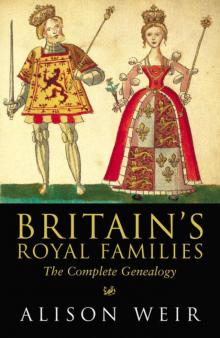 Britain's Royal Families: The Complete Genealogy
Britain's Royal Families: The Complete Genealogy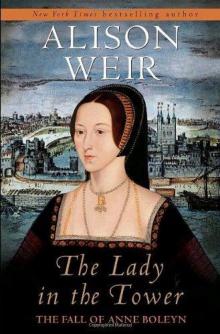 The Lady in the Tower: The Fall of Anne Boleyn
The Lady in the Tower: The Fall of Anne Boleyn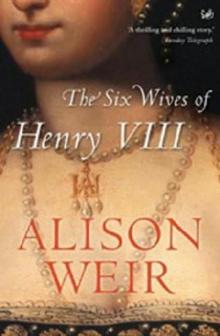 Six Wives of Henry VIII
Six Wives of Henry VIII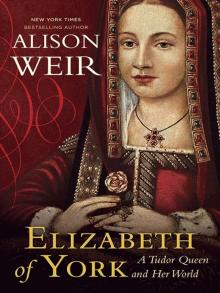 Elizabeth of York: A Tudor Queen and Her World
Elizabeth of York: A Tudor Queen and Her World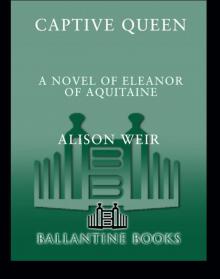 Captive Queen
Captive Queen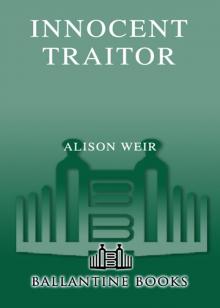 Innocent Traitor
Innocent Traitor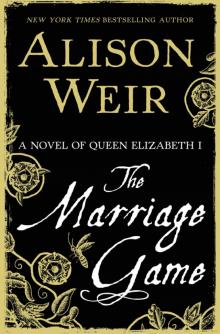 The Marriage Game
The Marriage Game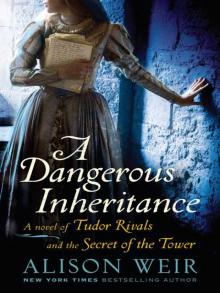 A Dangerous Inheritance
A Dangerous Inheritance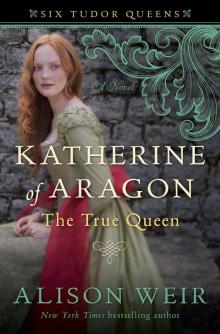 Katherine of Aragón: The True Queen
Katherine of Aragón: The True Queen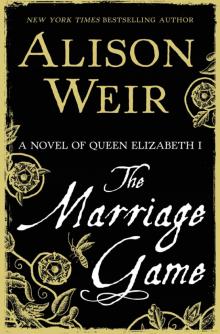 The Marriage Game: A Novel of Queen Elizabeth I
The Marriage Game: A Novel of Queen Elizabeth I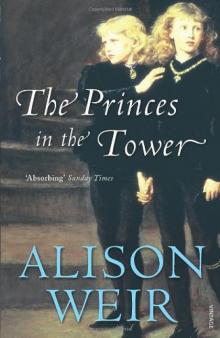 Princes in the Tower
Princes in the Tower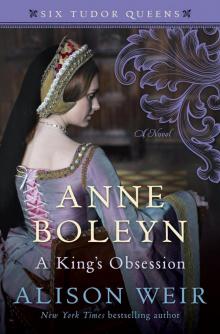 Anne Boleyn: A King's Obsession
Anne Boleyn: A King's Obsession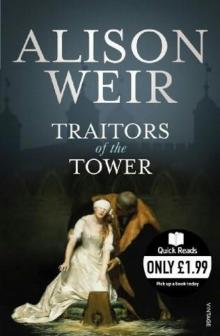 Traitors of the Tower
Traitors of the Tower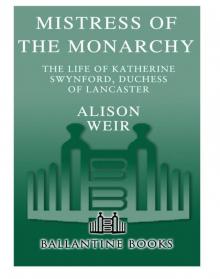 Mistress of the Monarchy: The Life of Katherine Swynford, Duchess of Lancaster
Mistress of the Monarchy: The Life of Katherine Swynford, Duchess of Lancaster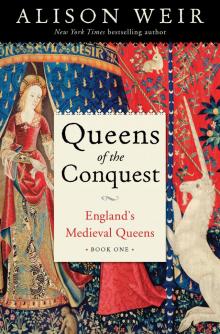 Queens of the Conquest: England’s Medieval Queens
Queens of the Conquest: England’s Medieval Queens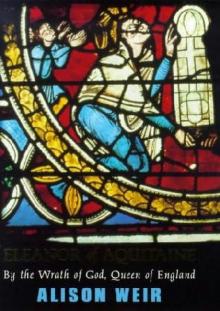 Eleanor of Aquitaine: A Life
Eleanor of Aquitaine: A Life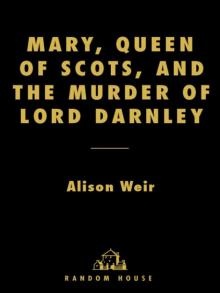 Mary, Queen of Scots, and the Murder of Lord Darnley
Mary, Queen of Scots, and the Murder of Lord Darnley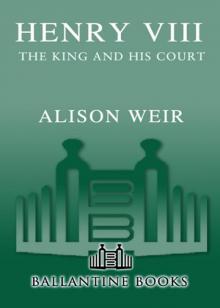 Henry VIII: The King and His Court
Henry VIII: The King and His Court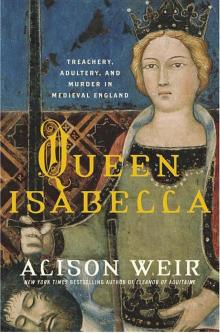 Queen Isabella: Treachery, Adultery, and Murder in Medieval England
Queen Isabella: Treachery, Adultery, and Murder in Medieval England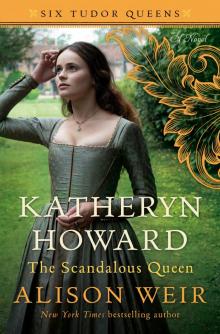 Katheryn Howard, the Scandalous Queen
Katheryn Howard, the Scandalous Queen Arthur- Prince of the Roses
Arthur- Prince of the Roses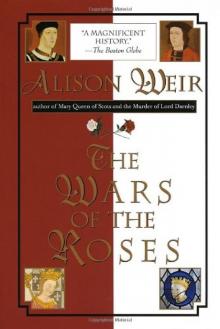 The Wars of the Roses
The Wars of the Roses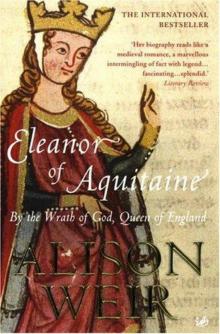 Eleanor of Aquitaine: By the Wrath of God, Queen of England
Eleanor of Aquitaine: By the Wrath of God, Queen of England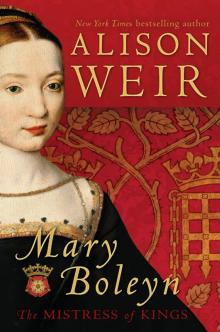 Mary Boleyn: The Great and Infamous Whore
Mary Boleyn: The Great and Infamous Whore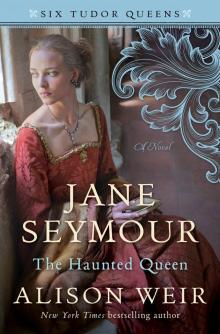 Jane Seymour: The Haunted Queen
Jane Seymour: The Haunted Queen Anna of Kleve, the Princess in the Portrait
Anna of Kleve, the Princess in the Portrait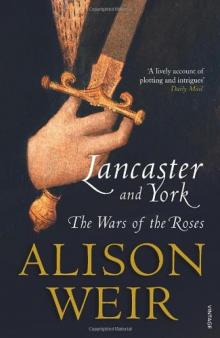 Lancaster and York: The Wars of the Roses
Lancaster and York: The Wars of the Roses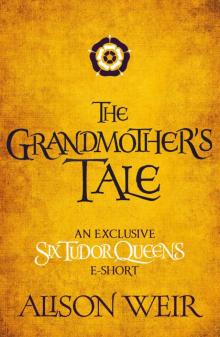 The Grandmother's Tale
The Grandmother's Tale The Princess of Scotland (Six Tudor Queens #5.5)
The Princess of Scotland (Six Tudor Queens #5.5)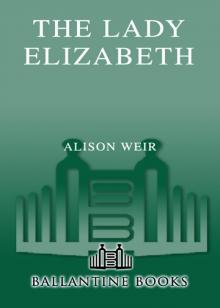 The Lady Elizabeth
The Lady Elizabeth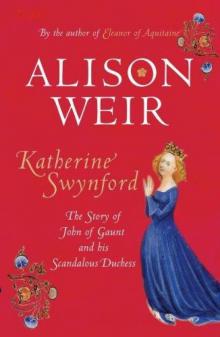 Katherine Swynford: The Story of John of Gaunt and His Scandalous Duchess
Katherine Swynford: The Story of John of Gaunt and His Scandalous Duchess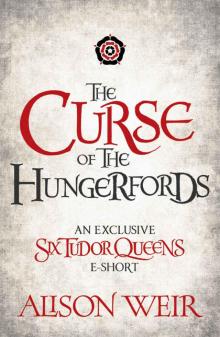 The Curse of the Hungerfords
The Curse of the Hungerfords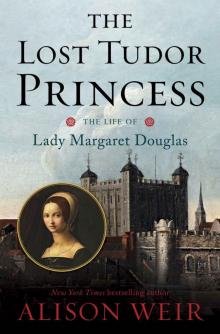 The Lost Tudor Princess: The Life of Lady Margaret Douglas
The Lost Tudor Princess: The Life of Lady Margaret Douglas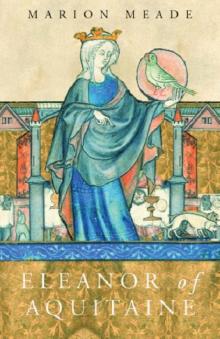 Eleanor of Aquitaine
Eleanor of Aquitaine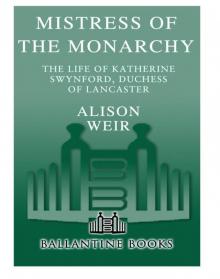 Mistress of the Monarchy
Mistress of the Monarchy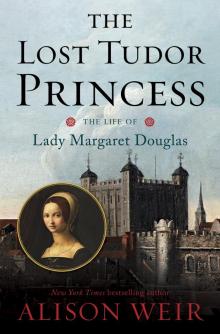 The Lost Tudor Princess
The Lost Tudor Princess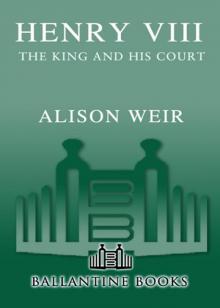 Henry VIII
Henry VIII Anne Boleyn, a King's Obsession
Anne Boleyn, a King's Obsession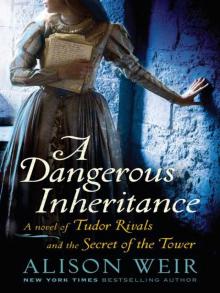 A Dangerous Inheritance: A Novel of Tudor Rivals and the Secret of the Tower
A Dangerous Inheritance: A Novel of Tudor Rivals and the Secret of the Tower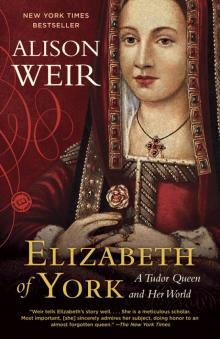 Elizabeth of York
Elizabeth of York Katherine of Aragon, the True Queen
Katherine of Aragon, the True Queen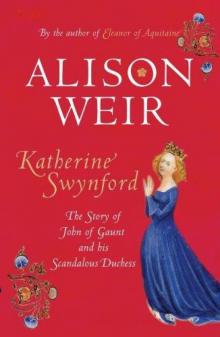 Katherine Swynford
Katherine Swynford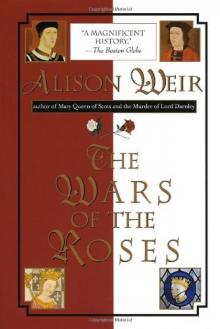 Wars of the Roses
Wars of the Roses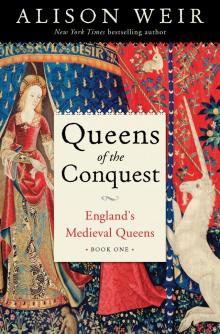 Queens of the Conquest
Queens of the Conquest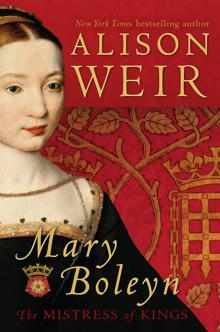 Mary Boleyn
Mary Boleyn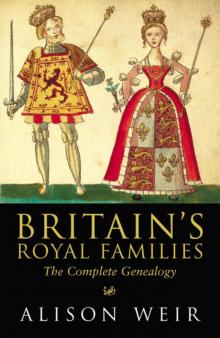 Britain's Royal Families
Britain's Royal Families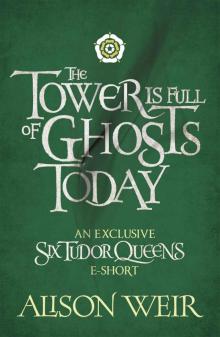 The Tower Is Full of Ghosts Today
The Tower Is Full of Ghosts Today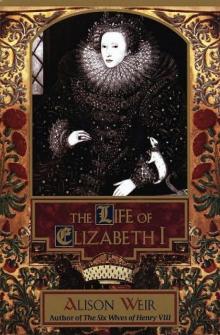 Life of Elizabeth I
Life of Elizabeth I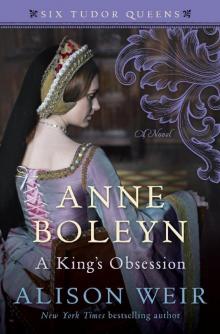 Anne Boleyn A King's Obssession
Anne Boleyn A King's Obssession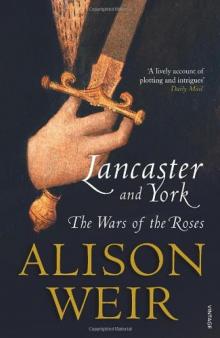 Lancaster and York
Lancaster and York Jane Seymour, the Haunted Queen
Jane Seymour, the Haunted Queen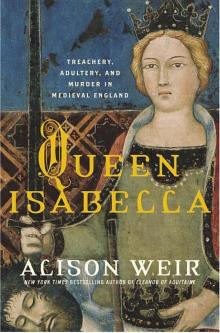 Queen Isabella
Queen Isabella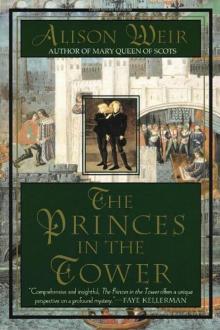 The princes in the tower
The princes in the tower